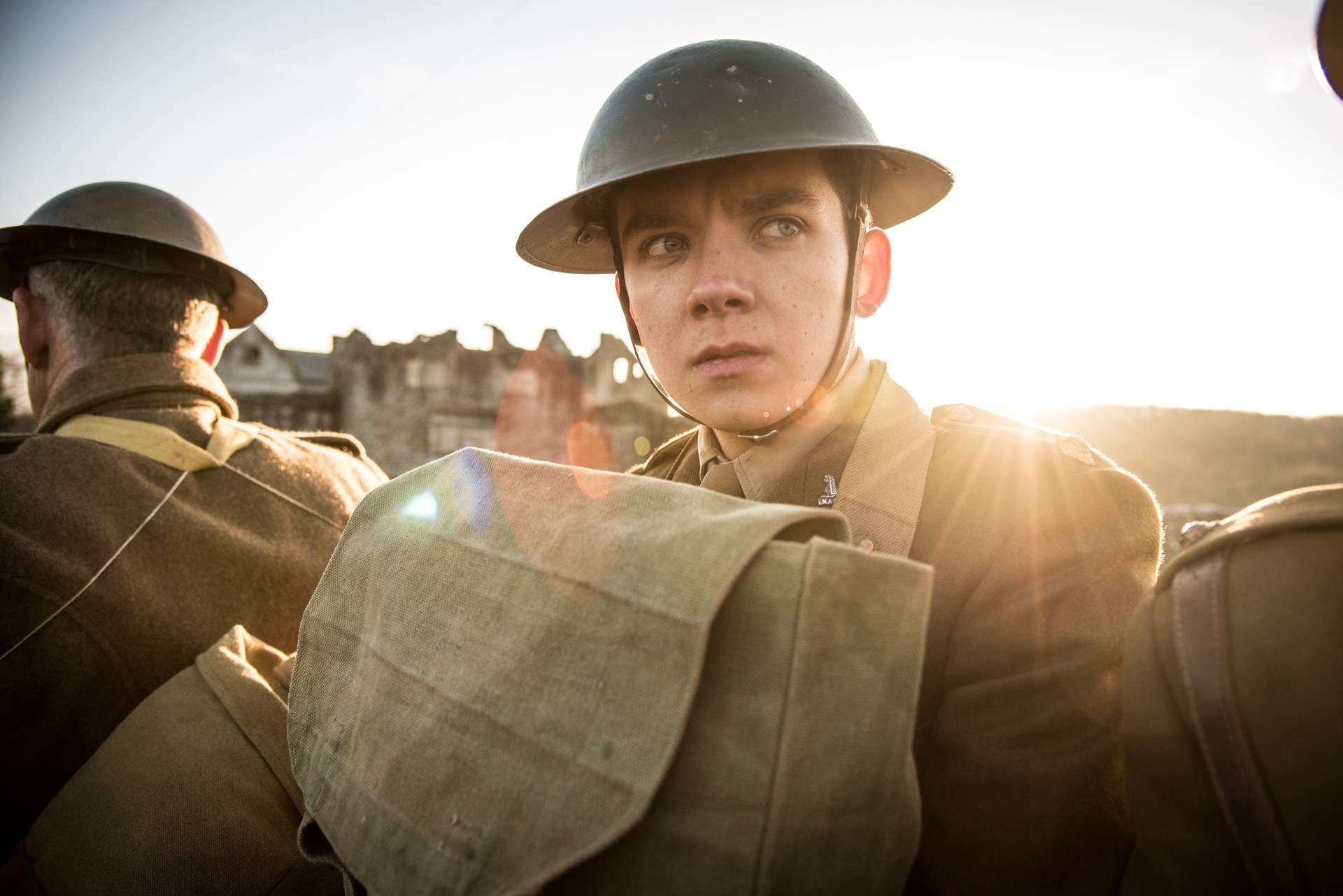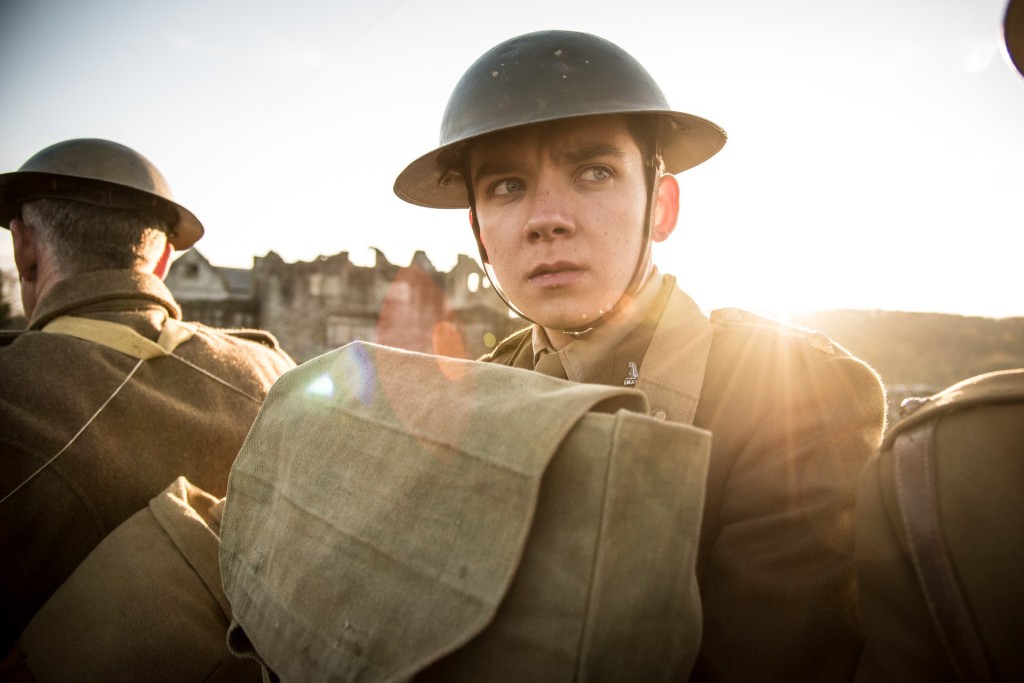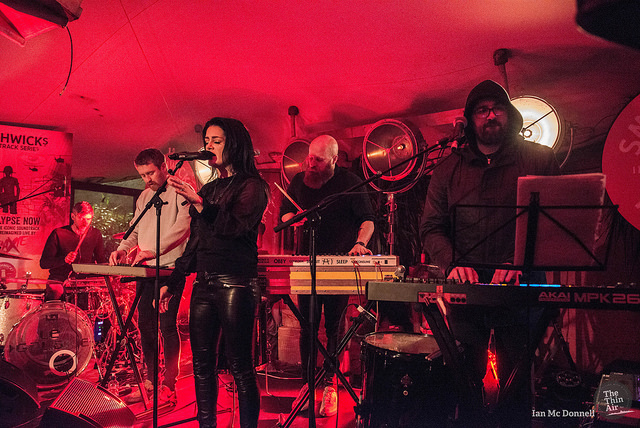On the 100 year anniversary of the end of The First World War, director Saul Dibb (Suite Francaise) and writer Simon Reade (Private Peaceful) have adapted R.C. Sheriff’s 1928 play, based on his real-life experiences, to serve as a timely, gut-punch of a reminder of the horrors of this dark period in our history. And with an exceptional British cast and an absolutely astoundingly detailed production, Journey’s End is a surefire war classic.
Set during the last year of the war in 1918, the story centres around British infantry unit C-company, as they make their way to the frontline trenches in Aisne, France. Led by Captain Stanhope, a young, deeply troubled officer who relies on whiskey to numb his woes, the soldiers soon learn that there is a German offensive due during their 6-day stint. When another young officer, a teenager, who was at school with Stanhope and is the brother of his wife-to-be, arrives for duty, the Captain’s reckless behaviour and manner escalate, creating unbearable tension in the bunker. As the impending attack gets ever closer and a high-risk operation is asked of C-company, can Stanhope and his soldiers hold it together to defend their position?
There are many aspects of Journey’s End that make it a cut above the average war film, but most of all, it is the fantastic cast that has Sam Claflin (Their Finest) on phenomenal form as the troubled Captain Stanhope, alongside Paul Bettany (A Beautiful Mind) in his best role in a long time as his second in command and confidant. The dynamic between the two is a joy to behold and when combined with the rest of the cast that includes Asa Butterfield (Son Of Rambo) as the new arrival, Stephen Graham (This Is England) as third in command and Toby Jones as the cook, adds to the authenticity of the script and production. It gives you the impression that you are bearing witness to an actual trench bunker from the time period. The banter flows but the unmistakable sense of impending doom always lurks and is in everyone’s eyes.
The level of authentic detail that the filmmakers have gone to great pains to achieve is highly impressive throughout. Trenchfoot, a condition that afflicts the foot in muddy conditions, is recreated with grim, visceral realism, with the actors trudging through horrendous conditions at all times. When the camera goes into an aerial view to show how close the Germans would have been (18 feet, sometimes), you get to see the incredible work that Dibb has done in recreating the trenches. It’s all on quite a small scale — say in comparison to Spielberg’s Warhorse — but the attention to detail is second to none. The alcohol rations that get devoured by the men tell a story of a much different time of warfare, as they have whiskey and rum rations that seem to be used to placate the men, due to the conditions that they have to endure.
But the overriding themes of Journey’s End highlight the awful ordeal that the average soldier went through when in the trenches, how much trauma/PTSD must have been rampant and how they were basically treated as expendable commodities by the top brass. This is most apparent in the nerve-wracking mission they are given to get intelligence that isn’t a kick off a suicide mission. This scene captures the chaos and recklessness of trench warfare with daunting clarity. With the later scenes involving artillery barrages by the Germans, you are left in no doubt as to the brutally stark nature of how battles were won in this cruel war.
Journey’s End is an exceptional war film that is an important reminder of what can happen when the great powers of this world get out of control in pursuit of greed, territory and fortune. And while it does go over familiar territory with its narrative and theme, this is one fine example that removes all glamour and heroics from the conflict, and instead presents the viewer with the stark, senseless reality for the people in the firing line. Kev Lovski
Journey’s End is showing at Queen’s Film Theatre, Belfast and the Irish Film Institute, Dublin until 15th Feb.






